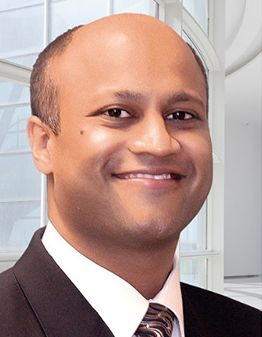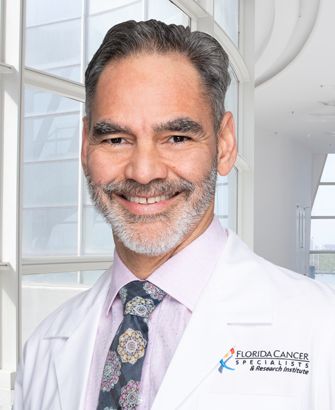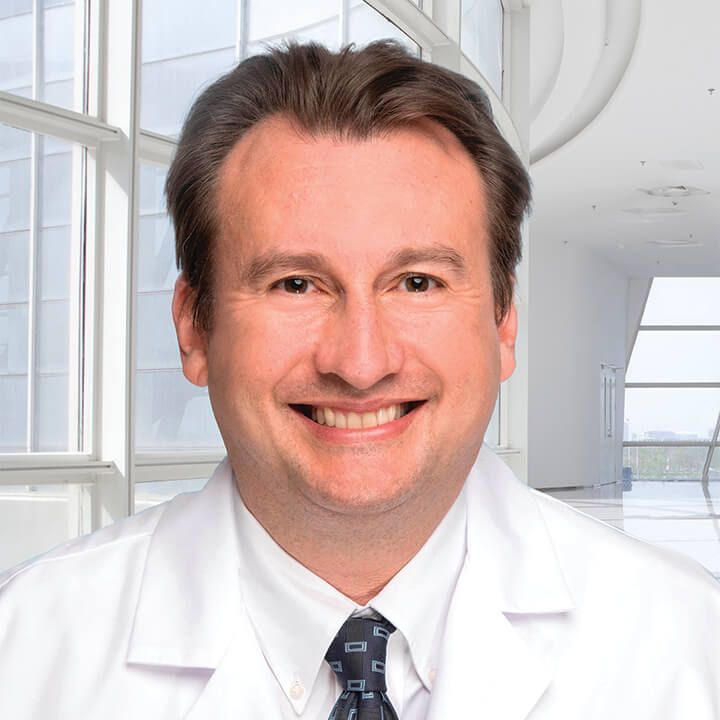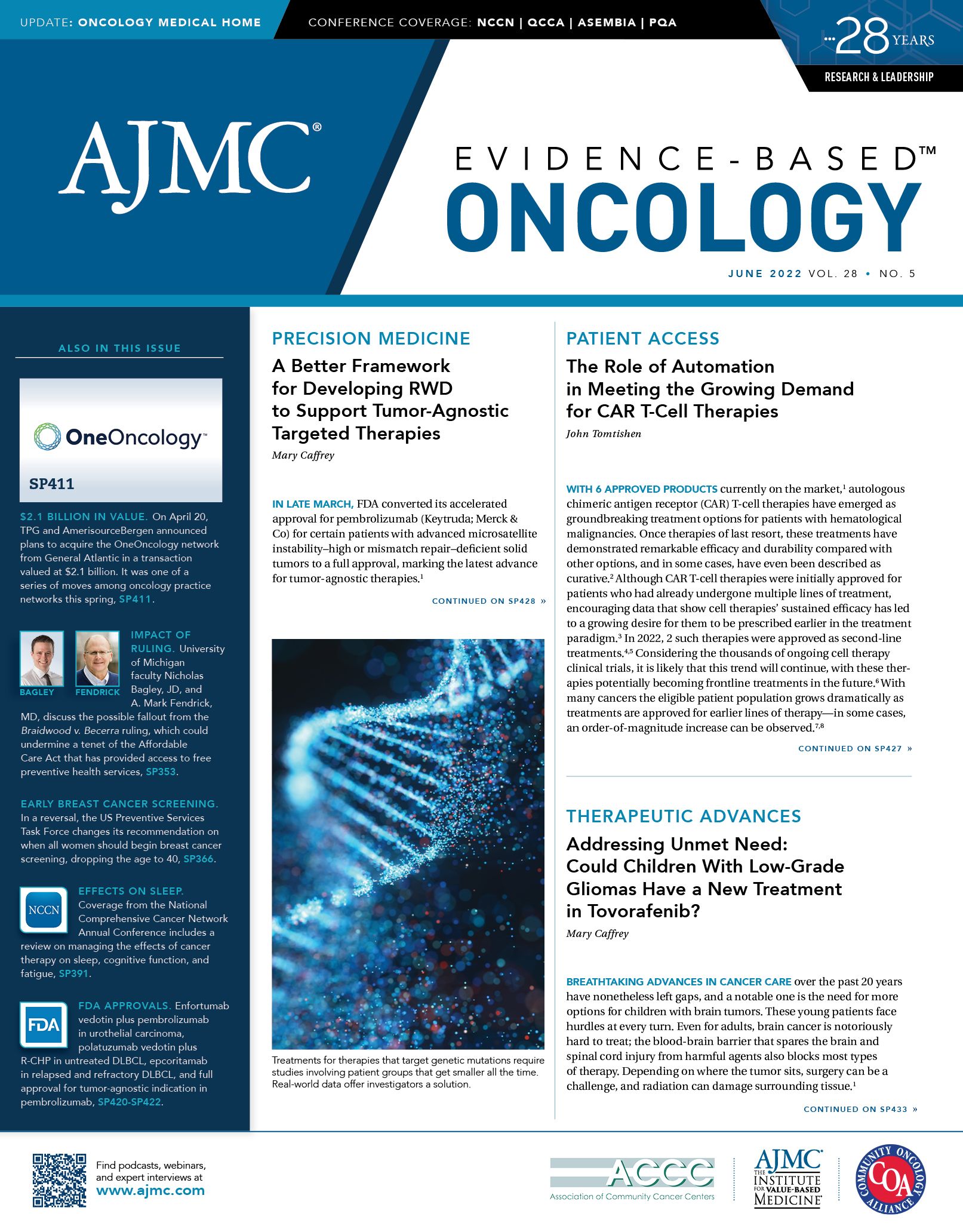- Center on Health Equity & Access
- Clinical
- Health Care Cost
- Health Care Delivery
- Insurance
- Policy
- Technology
- Value-Based Care
Florida Cancer Specialists Highlights Role in Development of Polatuzumab Vedotin Plus R-CHP in DLBCL
Florida Cancer Specialists recently released a case study that outlined its role in the evolution of a first-line therapy for adult patients with relapsed or refractory diffuse large B-cell lymphoma (DLBCL) that recently received FDA approval.
Florida Cancer Specialists & Research Institute, LLC (FCS) recently released a case study that outlined its role in the evolution of a first-line therapy for adult patients with relapsed or refractory (R/R) diffuse large B-cell lymphoma (DLBCL) that recently received FDA approval.
The case study can be found here.1
The regimen pairs polatuzumab vedotin (Polivy) an anti-body drug conjugate, with 4 drugs from the classic chemotherapy regimen known as R-CHOP, that has long been the standard of care for these patients. Rituximab, cyclophosphamide, doxorubicin (hydroxydaunorubicin hydrochloride), and prednisone (R-CHP) are still given, but vincristine (Oncovin), is omitted in the new therapeutic combination. FDA approved the combination as a first-line treatment in DLBCL on April 19, 2023.2
FCS actively participated in the phase 1, first in-human monotherapy trial for polatuzumab vedotin, as well as the pivotal phase 3 POLARIX study that led to approval as first-line treatment.
Patel

Polatuzumab vedotin first received accelerated approval in June 2019 for use in combination with 2 other treatments. This was based on favorable findings from a phase 1 clinical trial that showed 40% of patients receiving the regimen experienced a disappearance of all signs of cancer and remained in remission for 1 year or longer.
According to the statement from FCS, its FCS Drug Development Unit was one of 13 centers taking part in the initial phase 1 first-in-human trial that took place in 2011-2012 to evaluate the drug’s effectiveness.
“The observations that we made in this initial trial were the first steps to determining what is now part of standard of care for first line patients,” said Manish R. Patel, MD, FCS director of drug development. “It is rewarding to see the impact of our work in developing this drug.”
Fonseca

Gustavo Fonseca, MD, FACP, FCS director of clinical research, patients in the Phase 3 study achieved rapid and sustained improvements. “Patients in the study showed improvements in quality of life, functional status and the lymphoma-associated symptoms,” Fonseca said. “There are other persistent benefits from the patient perspective as well.”
FCS offers more than 300 clinical trials at 3 phase 1 units and 37 clinic locations across Florida. “We remain at the forefront of medical discoveries of new therapies and technologies that are continuing to provide new hope for patients,” Fonseca said in the statement.
Patel was a co-author of an abstract involving the phase 1 study assessing the safety and activity of polatuzumab vedotin,3 and Patel and Fonseca presented abstracts detailing the breakthrough findings at the American Society of Hematology 64th Annual meeting and Exposition in December 2022.4,5
Gordan Joins Mukherjee at ION Exchange Keynote
Gordan

FCS President and Managing PhysicianLucio Gordan, MD, took part in a keynote session with Pulitzer Prize-winning author, medical oncologist, biologist, and Rhodes ScholarSiddhartha Mukherjee, MD, at the ION Exchange 2023, held May 5-6 in San Diego, according to a statement from the practice. Mukherjee’s 2011 book, The Emperor of all Maladies, traced the knowledge of cancer and received the 2011 Pulitzer Prize for Nonfiction.
ION Exchange 2023 this week in San Diego who will share the latest clinical, operational and business insights to advance the quality of cancer care in community settings. According to a statement from FCS, they discussed discuss developments in oncology that result from ongoing discoveries in the understanding of genomics, as well as the important role that community-based providers will continue to play in the delivery of high-quality cancer care. FCS’ centralized pathology laboratory features next-generation sequencing testing capabilities that support physicians across the practice’s nearly 100 locations.
“Breakthroughs in the science of genetics are transforming our ability to deliver truly personalized cancer care,” Gordan said. “Dr Mukherjee offers a wealth of knowledge when it comes to furthering our understanding of the cancer biology and how future discoveries will continue to evolve the role of genetics leading to transformative innovations in oncology care.”
References
- Case study: The development of polatuzumab vedotin (Polivy) into first-line therapy for relapsed or refractory diffuse-large B-cell lymphoma. Florida Cancer Specialists & Research Institute. Published April 2023. Accessed May 10, 2023. 20559_FCS_CaseStudy_Polatuzumab_0423_FINAL.pdf (flcancer.com)
- FDA approves polatuzumab vedotin-piiq in previously untreated diffuse large B-cell lymphoma, not otherwise specified, and high-grade B-cell lymphoma. FDA Newsroom. April 20, 2023. Accessed May 10, 2023. https://bit.ly/3VODkEt
- Palanca-Wessels MC, Czuczman M, Salles G, et al. Safety and activity of the anti-CD79B antibody-drug conjugate polatuzumab vedotin in relapsed or refractory B-cell non-Hodgkin lymphoma and chronic leukemia: a phase 1 study. Lancet Oncol. 2015;16(6):704-715. doi: 10.1016/S1470-2045(15)70128-2.
- Study of Polatuzumab Vedotin (DCDS4501A) in Combination With Rituximab or Obinutuzumab Plus Bendamustine in Participants With Relapsed or Refractory Follicular or Diffuse Large B-Cell Lymphoma. Clinical Trials.gov. Updated November 14, 2022. Accessed May 10, 2023. https://clinicaltrials.gov/ct2/show/NCT02257567
- Tilly H, Morschhauser Sehn LH, et al. Polatuzumab vedotin in previously untreated diffuse large B-cell lymphoma. N Engl J Med. 2022;386(4):351-363. doi: 10.1056/NEJMoa2115304.

